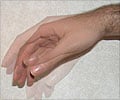A multi-sensory activity like a dance incorporated the use and stimulation of several sensory modalities that influenced the mood, cognitive, motor and neural challenges of Parkinson’s disease.

Over the course of three years, this activity can reduce daily motor issues related to balance and speech, which often lead to social isolation.
Researchers at York University discovered that people with Parkinson's (PwPD) who participated in weekly dance training, had less motor impairment and significant improvement in areas related to speech, tremors, balance and rigidity compared to those who did not do any dance exercise.
Their data also showed significant improvements in experiences of daily living such as cognitive impairment, hallucinations, depression and anxious mood.
The non-motor aspects of daily living, motor experiences of daily living, motor examination symptoms and motor complications did not show any impairment across time among the dance-trained PwPD group compared to PwPD who do not dance.
This study is the first of its kind to follow PwPD over a three-year period during weekly dance participation with music and providing additional information about the nature of the progression of motor and non-motor PD symptoms.
Advertisement
In Parkinson's disease even mild motor impairment can impact their daily functioning and lead to isolation. The psychological issues, depression, social isolation and symptoms do get worse over time.
Advertisement
Researchers will next examine what occurs in the brain immediately before and after a dance class to determine what neurological changes take place.
There is no precise intervention with PD and usual remedies are pharmacological interventions. This data will shed light on additional therapies used in the treatment process of Parkinson’s disease.
Source-Medindia









